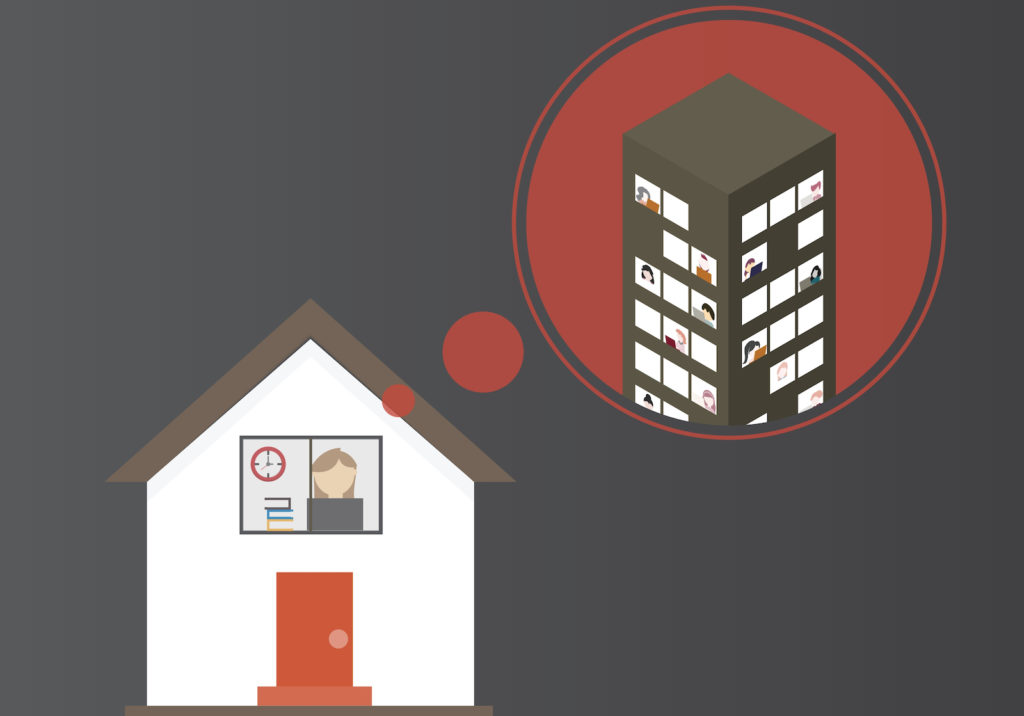"It's pretty obvious that those who are overly engaged with the company want to go to the office two-thirds of the time at least. Those who are least engaged are very comfortable working from home," said Sandeep Mathrani, CEO of office leasing company WeWork, during The Wall Street Journal's Future of Everything festival.
Since the event, Mathrani’s comment has faced the scrutiny of media and the Internet, not just because it obviously serves his company’s objectives to discourage work from home (WFH) but because many people actually find WFH far more productive. After two years of our pandemic-induced mass remote work trial, the comment has struck a nerve in the ongoing discussion on the future of work, suggesting that opinions on the topic are strong and divided. So, what is the psychology behind the remote work vs office debate, does it depend on worker engagement, and is one space really more productive than the other?
During the peaks of the pandemic, over 70% of US workers were working from home, and numerous surveys showed huge productivity gains. The Owl Labs State of Remote Work 2021 report found that 90% of people were as or more productive while working from home (up from 75% in 2020), partly due to the average of 40 minutes saved on daily commutes. Furthermore, 84% of respondents agreed that after the pandemic, being able to WFH would make them happier (up from 77% in 2020). The survey found that one in four people have changed jobs or are actively seeking new opportunities, of them 84% said the change was for more flexibility where they work and 82% said it was for more flexibility when they work.
“2021 was the year the world stayed remote. As the pandemic continued to evolve throughout the year, so did the way we work. Employee expectations permanently shifted, with many choosing to resign for a better work-life balance or more flexibility in where and when they work,” the Owl Labs report reads. “After the pandemic, employees have made their new work expectations loud and clear. Employers, listen up! The time is now to rethink your physical office space. If it isn’t wired for hybrid collaboration, it’s a wasted space.”
Almost half of the respondents in a UK survey for the Infogrid 2022 Hybrid workplace report said the opportunity to be around other people in a physical workspace boosted their wellbeing, compared with 23% saying their daily commute provides time to transition between home and work life. In the workplace, 58% of UK employees agree that they would feel better if their employer used data to improve their workplace, including data on air quality and building occupancy. With 31% wanting better control over the number of people in the workplace and 30% wanting the installation of better facilities to reduce virus transmission risk.
“A key takeaway from the pandemic must be that managing virus risk and keeping employees safe is a long-term necessity that brings with it benefits both for the health of employees as well as increasing productivity,” said William Cowell de Gruchy, CEO at Infogrid. “It isn’t science fiction, the tech is out there to ensure physical workspaces are well-ventilated, comfortable and safe for people to return to the workplace and feel the broader benefits to their wellbeing.”

Early in the pandemic, Microsoft published data about the number of times engineers working from home submitted changes to the company’s computer code — using this metric as a proxy for productivity. They found that productivity didn’t go down when engineers began working from home. “Across work items, commits, and pull requests, we’re not seeing any declines,” the Microsoft study said. While we might assume Microsoft’s computer engineers were better setup for WFH than an average worker at an average company, the role and company-specific results add to the array of often-contrasting information being put out there by various actors.
“At the office, all you do is focus on the office. At home, you have to juggle multiple demands, especially if you have kids — resulting in less engagement,” says Eddy Ng, Smith professor of business at Queen’s University, referring to the comment of the WeWork CEO. “At best, with the return to the office you can expect productivity to return to pre-pandemic levels, while you can actually get greater productivity out of working from home,”.
The truth is that for every person that is more productive in the office there is another that has been struggling with office life their whole career. The impact of the pandemic through this mass remote working trial has not just changed where we work but it has opened up the potential in a huge segment of the workforce. Like at school, in sports, in clubs, or bars, the office setting creates an environment that favors certain personality types, and therefore limits the potential of others. The pandemic has shown us that this is also true for WFH, which clearly does not suit everyone. However, the mass remote work trial of the last 2 years has given us the solution, a hybrid work model that offers each worker their optimum remote-office-life balance.
Those who thrive in the office can maximize their time in the physical workplace, those who work best in isolation can WFH more. Those whose overall lives are better when they can be at home more, can be, and those who have a better life balance by getting out everyday, can do so. We have been reporting on the human-centric trends sweeping over the physical workplace for many years, but what is more human-centric than designing the whole system of work around the worker? A pure hybrid work model would be one that is able to adapt the location and hours of work, but also enable communication between workers wherever and whenever they are. It will be remote and physical, real and virtual, open and metaversal, and it will be more productive.



